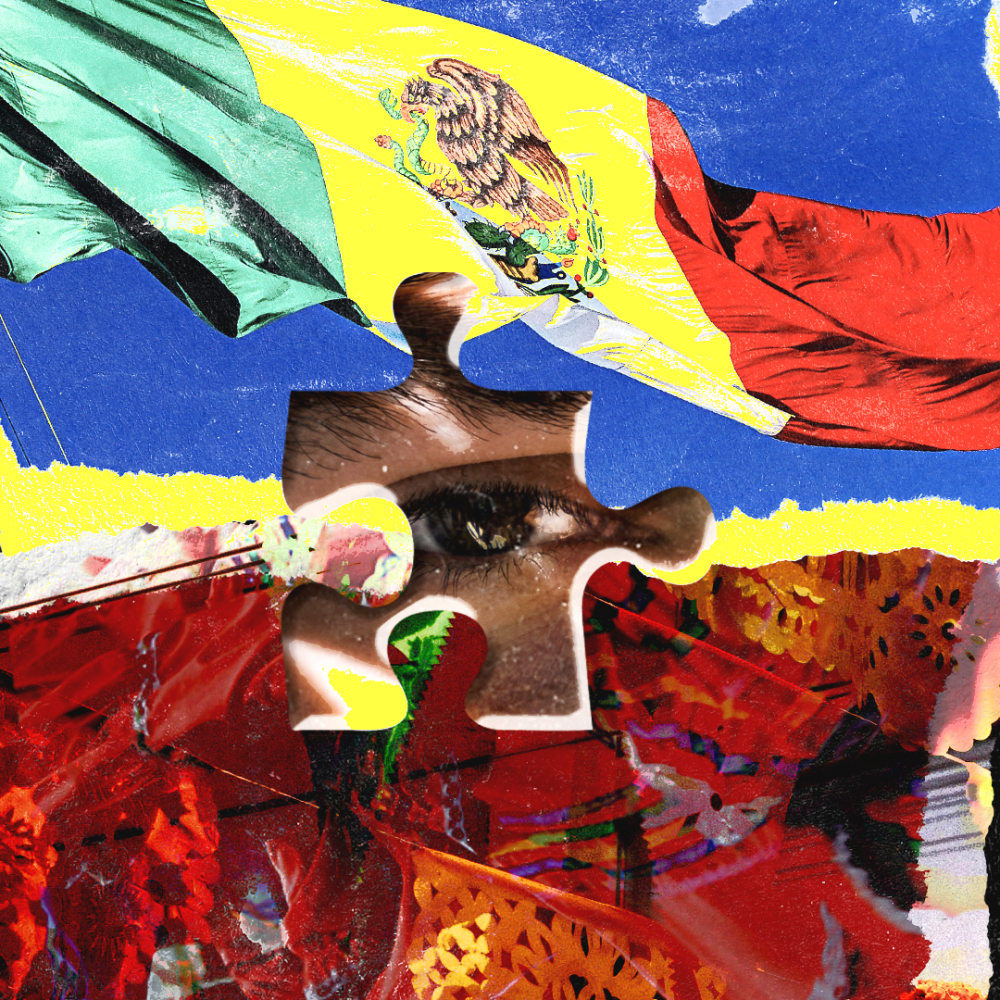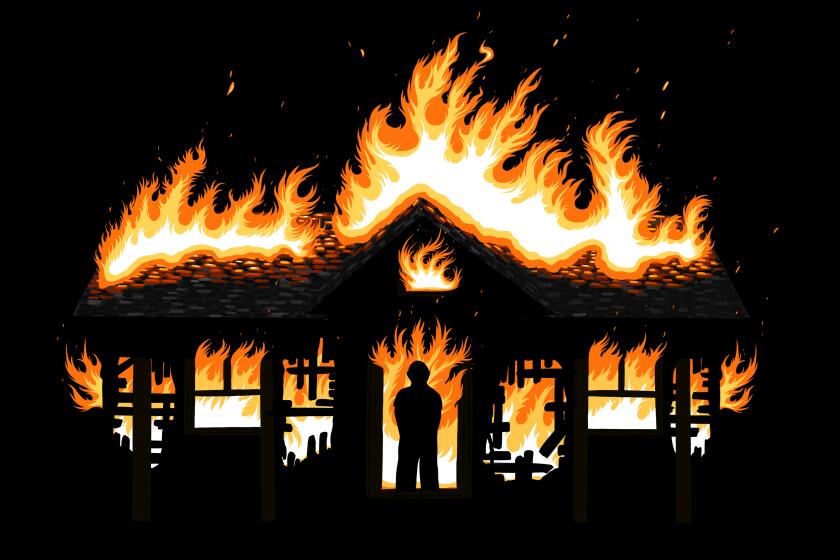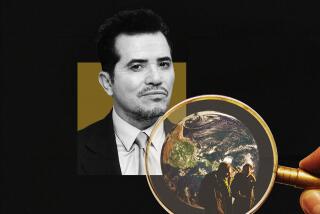
New research shows shifting attitudes regarding the role of Spanish language in defining Latino identity in the U.S. According to a recent analysis from Pew Research, 78% of U.S. Hispanics say it is not necessary to speak Spanish in order to be considered Hispanic. Within the group of Latinos who donât speak Spanish, however, 54% say they have been shamed because of it. These findings point to the complexities and seemingly conflicting sentiments about how Latinos in the U.S. see themselves, and bring us back to a core question: What makes someone Latino?
Itâs a question Iâve wrestled with as Iâve struggled to reconcile my familyâs Mexican heritage with my own story. I grew up close to my Mexican grandparents, but I was born in rural Oklahoma without an immediate Latino community around me, and I wasnât raised speaking Spanish. I must respectfully disagree with my abuelosâ decision not to teach Spanish to their kids or me. I have long felt like I was missing a piece of a puzzle.
They would have conversations in front of me, and I wouldnât know what was being said. Many of the things they said confused me, even in English. My abuelos didnât use the word Latino, but âHispanic,â and, even more common than that, âMexican.â For me, they used âChicano.â As a kid, this was all rather baffling. I knew there was an element of âothernessâ at play with my family, but I didnât know how that translated into how I saw myself.
Most also say itâs not necessary to speak Spanish to be considered Latino, the Pew Research Center analysis found.
As for the âotherness,â that much was very legible to me. My abuelos were both brown, poor, and told me stories about how theyâd grown up. My abuelo, for example, lived in a segregated Texas where he wasnât allowed to eat with the white kids on his baseball team after the game.
Many Mexicans in diaspora will no doubt have grown up with similar stories and with a similar arithmetic to complete: After adding up the experiences we have and subtracting the things we donât have, be it Spanish or traditions or a local community, what do we make of the result? And what happens when our individual answer looks different from the person sitting next to us, from our own parents or grandparents?
There is a long history of terms to describe people situated in a wide variety of relationships to Mexico. Chicano, for those of Mexican heritage born in the U.S. Pocho, for those who donât speak Spanish. Itâs become de rigueur, perhaps due to the rise of social media, to police and gatekeep identity, and some would no doubt exclude Chicanos and Pochos from the beleaguered project of Latinidad altogether. But it canât be denied that people have long held the notion that the essence of identity is malleable, that it is light and liquid enough to slip through borders and take on new permutations in another place.
Learning Spanish wasnât part of a quest for identity. I was proud of this fact; that I was pursuing fluency on my own terms and not for cultural credibility.
This is not just the case with Mexicans or with Latin Americans. There are models in the U.S. for what a Latino community without Spanish language could look like. Think, for example, of the Irish American or Italian American communities. There are Irish Americans who speak Gaelic and Italian Americans who speak Italian, but in broad strokes people view these groups as more or less assimilated. Many Latino families lose Spanish because of pressures to assimilate, and we can see the effects of those pressures in many of the new iterations of Latino identity in this country.
In general, there is an overemphasis on defining what a community is, in the personal and esoteric sense, as opposed to what a community does, in the more material sense. Perhaps this is due to the glorification of the utterly unique individual in the U.S. where thereâs a premium on anything that might make you seem more personally interesting.
But identity shouldnât just be ticking a box on a survey or adding a countryâs flag to your social media profile. It is a political tool meant to build a sense of commonality between yourself and someone who is otherwise leading a completely different life. It is a medium through which histories can be passed down, as well as values. It acts as a glue to bring coherence to individuals so that they can act more mightily as a unit.
Toxic gratitude or âSi Dios Quiere Syndromeâ is the concept that Latinos are too content with just receiving scraps instead of demanding what they deserve.
I think, specifically, of the Chicano Movement and of the Chicano Moratorium in 1970, where 20,000 to 30,000 people protested against the Vietnam War in East Los Angeles because of the disproportionate number of Mexican American troops being drafted and sent to the front lines of the Vietnam War, where they were far more likely to be killed or injured. A member of my family, Raymond Alaniz, died in this way.
In moving to define âcommunityâ as it relates to identity, people have historically engaged in a fraught sort of alchemy. They go looking for it in some magical property of blood, or in some shared history or language, or in a connection with land. But itâs more interesting to look for it in the conscious decisions groups of people make to organize themselves and mobilize to improve their material conditions.
I like to think I have a good sense of humor about these things. Itâs my opinion that identity is an absurd human hallucination based on an arbitrary criteria that is relative to different groupsâ norms, customs and beliefs. Iâve since learned a great deal of Spanish, but if someone in Mexico were to call me a pocho or make fun of my last name, Iâd just smile and nod. I know my heritage and I know who I am.
The events and emotions of the Chicano Moratorium still reverberate in L.A.âs Latino community 50 years later.
And despite my condition as a Chicano raised without Spanish, I do advocate for people in a similar situation to learn it. I think learning languages is a good thing, and, well, learning Spanish did bring me closer to aspects of the Mexican culture I grew up with. It made some blurry things more legible and allowed me to appreciate them in a different way.
Nor do I begrudge anyone who is precious about these things. These identities and histories come with a lot of baggage. When I say âitâs all made up,â Iâm not dismissing anyoneâs reality or how they see themselves. What I am saying, and what the analysis from Pew seems to be saying as well, is that identity can be subject to profound change within a relatively short span of time. The language we use to give shape to our experiences can look and sound radically different from one generation to the next.
What will remain important, though, is how we use that language to either build each other up or tear each other down. For groups that find themselves in the margins of society, community will always be a useful organizing tool to address inequality and injustice. Humans are at our best when we look out for the most vulnerable among us. That, I believe, is true no matter what language you speak.
John Paul Brammer is a columnist, author, illustrator and content creator based in Brooklyn. He is the author of âHola Papi: How to Come Out in a Walmart Parking Lot and Other Life Lessonsâ based on his successful advice column. He has written for outlets like the Guardian, NBC News and the Washington Post. He will write a weekly essay for De Los.
More to Read
The Latinx experience chronicled
Get the Latinx Files newsletter for stories that capture the multitudes within our communities.
You may occasionally receive promotional content from the Los Angeles Times.









